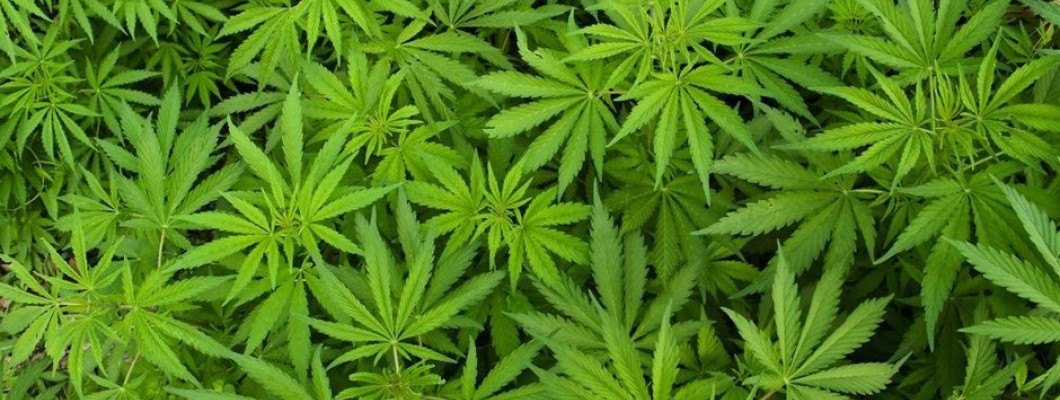
What is CBD oil?
There are different levels of compounds found in the natural hemp or cannabis plant. How people breed the plant affects the CBD levels. Most CBD oil comes from industrial hemp, which usually has a higher CBD content than marijuana.
Makers of CBD oil use different methods to extract the compound. The extract is then added to a carrier oil and called CBD oil.
CBD oil comes in many different strengths, and people use it in various ways. It is best to discuss CBD oil with a doctor before using it.
Does CBD make you high?
CBD is an entirely different compound from THC, and its effects are very complex. It is not psychoactive, meaning it does not produce a "high" or change a person's state of mind, but it influences the body to use its own endocannabinoids more effectively.
According to one study posted to Neurotherapeutics, this is because CBD itself does very little to the ECS. Instead, it activates or inhibits other compounds in the endocannabinoid system.
For example, CBD stops the body from absorbing anandamide, a compound associated with regulating pain. So, increased levels of anandamide in the bloodstream may reduce the amount of pain a person feels.
Cannabidiol may also limit inflammation in the brain and nervous system, which may benefit people experiencing pain, insomnia, and certain immune-system responses.
CBD is one of more than 120 compounds called cannabinoids.
Many plants contain cannabinoids, but people most commonly link them to cannabis.
Unlike other cannabinoids — such as tetrahydrocannabinol (THC) — CBD does not produce a euphoric "high" or psychoactive effect. This is because CBD does not affect the same receptors as THC.
The human body has an endocannabinoid system (ECS) that receives and translates signals from cannabinoids. It produces some cannabinoids of its own, which are called endocannabinoids. The ECS helps to regulate functions such as sleep, immune-system responses, and pain.
When THC enters the body, it produces a "high" feeling by affecting the brain's endocannabinoid receptors. This activates the brain's reward system, producing pleasure chemicals such as dopamine.
Benefits
People have used CBD traditionally used for thousands of years to treat various types of pain, but the medical community have only recently begun to study it again.
Here are some of the possible benefits of CBD oil:
Arthritis pain
CBD oil is popular for easing pain associated with arthritis.
A study in the European Journal of Pain used an animal model to see if CBD could help people with arthritis manage their pain. Researchers applied a topical gel containing CBD to rats with arthritis for 4 days.
Their researchers note a significant drop in inflammation and signs of pain, without additional side effects.
People using CBD oil for arthritis may find relief from their pain, but more human studies need to be done to confirm these findings.
Multiple sclerosis
Multiple sclerosis (MS) is an autoimmune disease that affects the entire body through the nerves and brain.
Muscle spasms are one of the most common symptoms of MS. These spasms can be so great they cause constant pain in some people.
One report found that short-term use of CBD oil could reduce the levels of spasticity a person feels. The results are modest, but many people reported a reduction in symptoms. More studies on humans are needed to verify these results.
Chronic pain
The same report studied CBD use for general chronic pain. Researchers compiled the results of multiple systematic reviews covering dozens of trials and studies. Their research concluded that there is substantial evidence that cannabis is an effective treatment for chronic pain in adults.
A separate study in the Journal of Experimental Medicine supports these results. This research suggests that using CBD can reduce pain and inflammation.
The researchers also found that subjects were not likely to build up a tolerance to the effects of CBD, so they would not need to increase their dose continually.
They noted that cannabinoids, such as CBD, could offer helpful new treatments for people with chronic pain.
Other uses
In the United States, CBD oil has varying legality across different states and at a federal level, yet it currently has a range of applications and promising possibilities.
These include:
smoking cessation and drug withdrawal
treating seizures and epilepsy
anxiety treatment
reducing some of the effects of Alzheimer's, as shown by initial research
antipsychotic effects on people with schizophrenia
future applications in combating acne, type 1 diabetes, and cancer
Although more research is required to confirm some uses of CBD oil, it is shaping up as a potentially promising and versatile treatment.
In June 2018, the U.S. Food and Drug Administration (FDA) approved one form of CBD as a treatment for people with two rare and specific kinds of epilepsy, namely Lennox-Gastaut syndrome (LGS) or Dravet syndrome (DS).
The brand name of this drug is Epidiolex.
Dosage
The FDA does not regulate CBD for most conditions. As a result, dosages are currently open to interpretation, and people should treat them with caution.
Anyone who wishes to use CBD should first speak to a doctor about whether it is a good idea, and how much to take.
The FDA recently approved a purified form of CBD for some types of epilepsy, with the brand name Epidiolex. If you are using this medication, be sure to follow the doctor's advice about doses.
